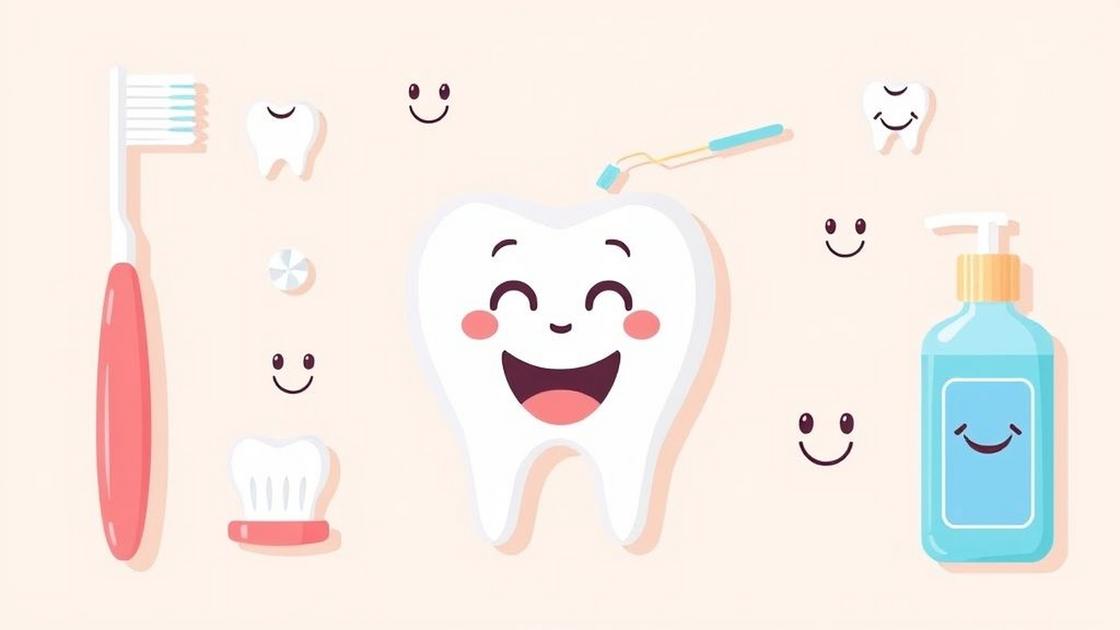Have you ever felt a sharp pain in your tooth and wondered what to do? If you’re dealing with dental issues like cavities, finding ways to manage them without visiting the dentist can feel overwhelming. Home remedies for cavities without a dentist might just be the answer you’re looking for. These natural solutions can help reduce discomfort and prevent further damage, allowing you to take control of your dental health. In this post, we’ll share practical tips and comforting remedies that any woman over 30, battling the challenges of daily life, can incorporate into her routine to promote strong teeth.
Understanding Cavities: Causes and Symptoms
Cavities, also known as dental caries, are areas in your teeth that have become decayed. They are caused by a combination of factors, including poor oral hygiene, frequent snacking, sugary drinks, and a lack of fluoride. Understanding these causes is essential for prevention.
Common symptoms of cavities include:
- Toothache: Persistent or sudden pain in your teeth.
- Sensitivity: Feeling pain or discomfort when consuming hot, cold, or sweet foods.
- Visible Holes: Small pitting or holes in the teeth.
- Staining: Dark spots on the surface of the teeth.
Recognizing these symptoms early can help in managing cavities effectively at home.
The Benefits of Home Remedies for Dental Care
Home remedies for cavities can be a cost-effective and easy approach to maintaining dental health. Some benefits include:
- Accessibility: Many remedies can be made from ingredients you already have at home.
- Natural Ingredients: Reduce exposure to harsh chemicals.
- Promotes Overall Health: Supporting natural healing can improve overall well-being.
- Cost-saving: Less frequent dental visits can save money.
These remedies can offer temporary relief and support the healing of minor cavities.
Simple Ingredients You Already Have at Home
Before you reach for commercial products, look in your kitchen. Many common ingredients can help combat and prevent cavities:
- Baking Soda: A natural abrasive that helps remove plaque.
- Salt: Acts as a natural antiseptic.
- Honey: Contains antibacterial properties.
- Green Tea: Rich in antioxidants that support oral health.
These simple ingredients can easily be incorporated into your daily routine for added dental care.
How to Use Baking Soda for Cavity Prevention
Baking soda is an excellent natural remedy for maintaining oral health. Here’s how you can use it:
- Toothpaste Substitute: Mix a small amount of baking soda with water to form a paste. Brush your teeth with it twice a week.
- Rinse: Create a baking soda rinse by dissolving a teaspoon in a cup of water. Use it once daily to help neutralize acids in your mouth.
Regular use can help in reducing cavity-causing bacteria and keeping your teeth clean.
Natural Antiseptics: Clove Oil and Its Magic
Clove oil has powerful antiseptic and analgesic properties that can relieve tooth pain and fight infection. Here’s how to use it:
- Direct Application: Soak a cotton ball in clove oil and apply it to the affected tooth for 10-15 minutes.
- Clove Oil Rinse: Mix a drop of clove oil with a glass of warm water and use it as a mouthwash.
Its strong taste and scent can help mask the discomfort associated with cavities.
How to Incorporate Coconut Oil into Your Routine
Coconut oil has gained popularity for its dental benefits. It can help reduce plaque buildup and promote overall oral hygiene. Consider trying:
- Oil Pulling: Swish a tablespoon of coconut oil in your mouth for 10-20 minutes. Spit it out and brush your teeth afterwards.
- Coconut Oil Toothpaste: Combine coconut oil with baking soda to create your homemade toothpaste.
Incorporating coconut oil into your dental routine may help combat cavities and improve freshness.
The Role of Nutritional Choices in Dental Health
Your diet directly impacts your dental health. Here are some tips for healthier choices:
- Limit Sugars: Reducing sugar intake can help decrease cavity risk.
- Eat Crunchy Fruits and Vegetables: Foods like apples and carrots can help scrub your teeth naturally.
- Stay Hydrated: Drink plenty of water to help wash away food particles.
- Include Dairy: Foods rich in calcium, such as yogurt and cheese, can strengthen teeth.
Making smart nutritional choices can enhance your oral health.
Healing Mouth Rinses You Can Easily Make
Creating healing mouth rinses at home is simple and effective. Here are a few recipes:
- Saline Rinse: Mix one teaspoon of salt in a glass of warm water. Rinse daily to reduce inflammation.
- Apple Cider Vinegar Rinse: Dilute one tablespoon of apple cider vinegar in a glass of water as a natural disinfectant.
- Essential Oil Mouthwash: Add a few drops of peppermint or tea tree oil to a cup of water for extra antibacterial properties.
These rinses can provide soothing benefits to your dental care routine.
Listening to Your Body: Signs It’s Time for Help
While home remedies can provide relief, it’s important to recognize when it’s time to see a dentist. Pay attention to these signs:
- Persistent Pain: If the toothache lasts for more than a few days.
- Swelling: Noticeable swelling of the gums or face.
- Difficulty Eating: If you experience pain while chewing.
- Infection Signs: Symptoms such as fever or pus coming from the tooth.
Taking care of your dental health means knowing when professional help is necessary.
Embracing Self-Care for Your Dental Wellbeing
Practicing self-care can positively impact your dental health. Here are some tips to incorporate into your routine:
- Consistent Oral Hygiene: Brush twice a day and floss daily.
- Regular Check-ups: Even when using home remedies, keeping up with your dental visits is crucial.
- Stay Informed: Educate yourself on dental health and latest remedies.
- Mindfulness: Recognize your body’s needs and avoid neglecting signs of discomfort.
Caring for your teeth is integral to your overall health, so pay attention to self-care practices that promote a healthy smile.






